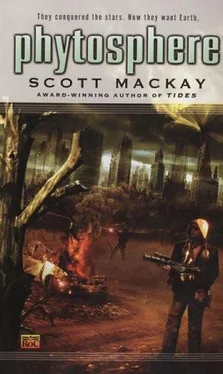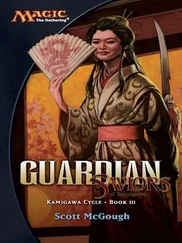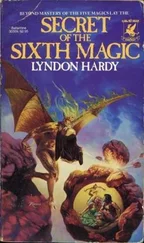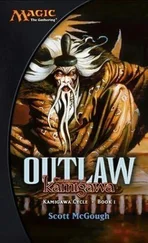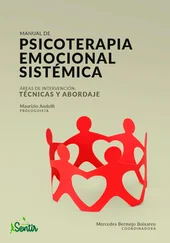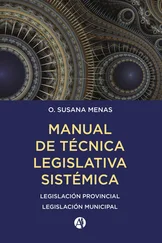Hulke arrived somewhere in the middle of it, peering around, trying his best to look at ease. He walked up the aisle with his usual mellow gait, but his face was red, his shoulders riding higher on his body than they usually did. He looked as if he had been outdanced at a dancing competition.
He came to the platform. “Gerry… I hope you don’t mind if I’m skeptical about this.”
“Kafis is lying.”
“Not about turning this place into a self-sustaining paradise. We had a meeting this morning. He showed me the plans.”
“We can save Earth.”
“I don’t think so.”
He decided that Hulke needed forgiveness. “I’m glad you’re here anyway.”
“You’re not going to change our minds, Ger.”
“Look, here comes Luke.”
Luke Langstrom shuffled up the aisle.
When he finally reached them, Luke gave Gerry a bow. “I admire your persistence.”
“Thanks for coming, Luke.”
“Wouldn’t miss it for the world.”
The mayor and Luke drifted off and took seats on the brown, stackable chairs.
Gerry kept his eye on Hulke. Hulke watched the door. The mayor saw more and more of his campaign supporters and contributors come in. It was as if Hulke could sense the noose tightening, just what Gerry needed. At last Hulke got so nervous that he came back up to the front.
“Gerry, you’ve invited some extremely… influential people.”
“What I have to say tonight involves everybody on the Moon.”
“Where did you find these names?”
He shrugged. “Stephanie helped me.”
Hulke frowned. “A lot of these people…” He gestured out at the ballroom. “They’re coming out of respect. Because you’re an Earthman. I don’t want you to get your hopes up.”
“How would you like to go down in history as the man who saved Earth?
“Considering I’m going down in history as the man who save the Moon—”
“It’s not enough, Malcolm.”
“Gerry, I’m not your enemy. I have to be practical.”
“I know who my enemy is. Do you see any Tarsalans around?”
“No.
“Look, there’s Ira. Christ, he looks pissed.”
Hulke turned around and spotted Ira. “I better head him off at the pass.”
Hulke left.
The mayor and Ira met halfway up the aisle and exchanged some words.
Mitch, who was sitting behind the table on the platform, shifted nervously.
At the back, Ian and Stephanie closed the doors. Ian started spraying a spray can of the commercially available debugging aerosol into the air. Some people glanced at him, curious about what he was doing.
Others seemed to know. One thing Gerry knew for sure: The Tarsalans had to have macrogenic airborne surveillance units in the room. And, in fact, a moment later the charged particles from the spray can attached themselves to the various flying listening devices, making them glow as if with a phosphorescent dust. Like ice crusting on the wings of aircraft, the areosol finally brought the devices, one by one, to the floor.
Ira left the mayor, came to the platform, and in the midst of a dozen miniature crash landings had a few hot, quiet words with Mitch.
Gerry walked over to lend Mitch support. The small, unassuming technician was really the hero in all this.
But then Ira swung on Gerry unexpectedly. “Do you have any idea how unstable those early prototypes are?”
Gerry glanced at Mitch. “You told him?”
Mitch looked as if he were hanging by thumbscrews. “He’s my boss.”
Ira had gone red in the face. “You could have gotten everybody killed at Copernicus. And why did you have to initiate the fields in the first place? Those two units were put on ice for a good reason.”
“Ira, sit down. Don’t go blaming Mitch. I’m the one behind it all. If there are any charges to be laid, or bills to be paid, I’m your man. I’m not entirely unfamiliar with sitting in jail. And I’m so far in debt already, a little more’s not going to hurt.”
“Why isn’t Kafis here?”
“Because I didn’t invite him.”
“I think Kafis should be included in any official meetings.”
“In case you haven’t noticed, this isn’t official. This is just Gerry shooting the breeze.”
“Which is what you’ve been doing all along.”
Ira walked away in a huff and took his seat.
Ian continued to spray the aerosol into the air. Stephanie, meanwhile, switched off the lights. As the last remaining bugs crash-landed on the red carpet, they luminesced like daubs of neon paint. Gerry walked to the microphone and pointed to the bugs.
“You see those?” he said. “The Tarsalans are recording everything that’s going on right now. Let’s get rid of their bugs. This meeting is for humans only. If those nearest the surveillance units could please step on them?”
He watched various audience members step on the macrogenic listening devices.
“This whole demonstration serves a twofold purpose,” he said. “Number one: We’re getting rid of their bugs. Number two: No matter what some people might say, we’re still at war with the Tarsalans. And we have to be careful because now we have some of them on the Moon, two hundred, in ships out in the Alleyne Crater. And they’re offering us a deal. They say they’ll make the Moon a self-sustaining home for us. In return we must let them live here as refugees. They say they’ve inventoried every screw, nut, and bolt on the Moon, and that if we’re careful, we can maintain independent life support here indefinitely. They tell us that Earth is lost and that, during the attack on the TMS, the phytosphere control device was destroyed by U.S. troops. They tell us that there is nothing to be done for Earth. And after spending the last forty-eight hours studying the inventory on the Moon for myself, I have to agree with them—we don’t have the materials to fix the situation on Earth. Indeed, the engineering materials needed to destroy the phytosphere are considerable, and they are not on the Moon, yet, paradoxically, not out of our reach either.”
He glanced around to see what effect this statement had on everybody; at least they were all listening.
“But before we get into a discussion of just what the engineering necessities might be, we should take a look at what exactly we have to do to destroy the phytosphere. Because that’s what this meeting is all about.”
The mayor stood up. “Uh… Gerry, my man… with all due respect, the Moon cannot at this time embark on a project to destroy the… uh… phytosphere.”
“And that’s why I’m glad you’re here, Malcolm. Because I think there should be some political discussion. I see several council members here… and even some members of the media…and is that Richard Glamna from the LBC I see? And I guess the political question of the hour—and I’m sure the one that’s on everybody’s mind, and the one people are going to take to their graves with them if they don’t answer it morally—is how do we live with the deaths of twelve billion people on our consciences without even trying to help them? Because it is possible to help them. There is a way we can save the Earth.” He felt mildly buoyed by his own statements, and thought this was what Neil must feel like a lot of the time, making bold proclamations like this. “If we start working now, we can destroy the phytosphere in as little as four weeks.”
And here he outlined in layman’s terms all the research he had done since the middle of June: his work on the flagella, on gravity, on how gravity affected the flagella—and it was like he was in Jarrell Hall again, because every time he gave a lecture, he understood his material better; and it all made perfect sense to him. The flagella acted not only as connecting limbs, but also as a kind of brain stem that looked after the lower functions, those basic muscular and hormonal roles that made the phytosphere behave the way it did. He thought of the simple physics of a force activating the triggering system: the carefully calibrated dance of gravity between the Earth and the Moon. And it was fortuitous that he was an ocean scientist, and that there should be tides involved, and that it was the tides in the phytosphere that had finally tipped him off to the whole system. As he explained more and more background, the room grew silent and an atmosphere of belief seemed to ferment in the air, the genesis of comprehension, and a faith that this thing—this magnificent but terrifying darkness of the Tarsalans—could at last be defeated.
Читать дальше
